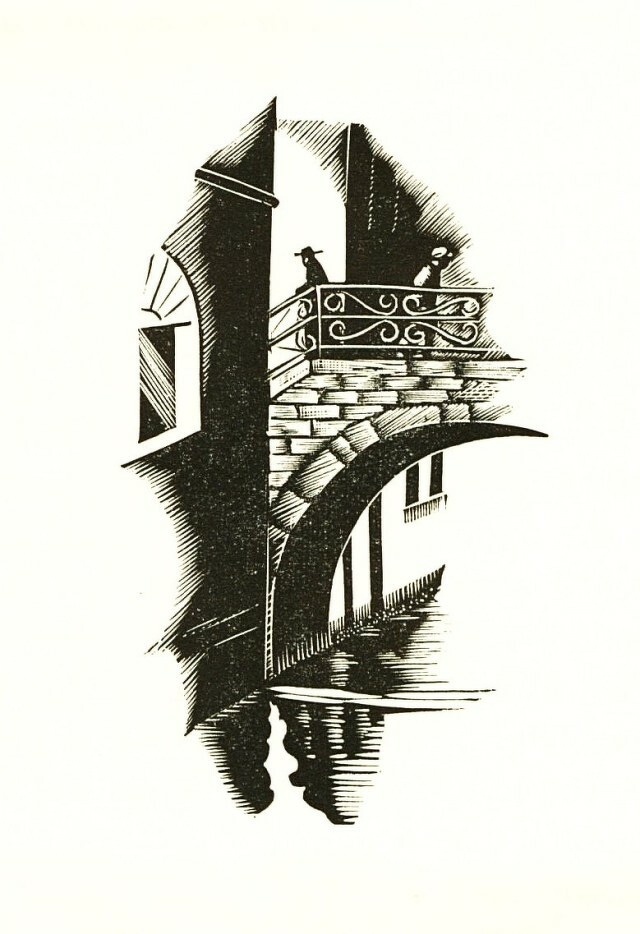As a friend who works in Al told me, Al heightens the contradictions. It is a boon to those with the motivation and background to cultivate knowledge but it spells total destruction for the system of universal education and credentialing. My worry is that we may run out of people with motivation and background to learn, know, and do. In the future, Gen X and millennial knowledge workers will be the human capital equivalent to pre-war steel. Just as particle detectors need steel forged before atmospheric nuclear testing gave all newly forged steel unacceptable background radiation, we will discover that even if your job mostly consists of interacting with LLMs, doing so well will require people who remember what it was like to read and interpret a document or contrast two ideas without asking an LLM to do it for you.
I’m very much enjoying teaching Lud-in-the-Mist again. A few years back I wrote a brief essay about it.
A heart-breaking and heart-healing reflection by Rachel Teubner on birth and death in an endlessly mobile world.
States struggled to work out their role in these rapidly changing systems. Private mail presented different problems: should couriers working for state-funded postal services be allowed to carry post on behalf of paying customers? For the states that underwrote postal systems, this was risky – it increased the risk of robbery since private mail often included money and valuables – yet attractive: an efficient postal service subsidised by private clients would be less of a drain on state resources. Controlling the carriers of private mail also made surveillance simpler. As time went on, the price of sending a private letter fell, so that more ordinary people were involved in the flow of mail and news: ‘What had started as a state privilege had become a preferred public service.’ Crucially, by the second half of the 17th century, the postal stagecoach had become the essential vehicle of European travel, carrying passengers at the same speed as it delivered the mail. The machinery of the post – its itineraries and printed guides, inns as relay stations, couriers with local knowledge – adapted seamlessly to facilitate a new era of tourism and would form the backbone of the Grand Tour. The infrastructure of posts and couriers that served states and merchants laid the foundations for a revolution in communications.
I wonder how many U.S. court cases have already been decided by judges using chatbots to write their opinions in response to lawyers on both sides who used chatbots to write their briefs.
It’s interesting and useful to imagine — really visualize — the chatbots and agents in ten years or twenty … barnacled with gunk … locked in a permanent cat-and-mouse game with their adversaries … just as a platform like Google is today. In 2036, you send your AI agent out into the internet, and it returns battered, bedraggled, inexplicably enthusiastic about a bargain flight to Bermuda.
Lord Dunsany, from The King of Elfland’s Daughter:
There passed ten years over the fields we know; and Orion grew and learned the art of Oth, and had the cunning of Threl, and knew the woods and the slopes and vales of the downs, as many another boy knows how to multiply figures by other figures or to draw the thoughts from a language not his own and to set them down again in words of his own tongue. And little he knew of the things that ink may do, how it can mark a dead man’s thought for the wonder of later years, and tell of happenings that are gone clean away, and be a voice for us out of the dark of time, and save many a fragile thing from the pounding of heavy ages; or carry to us, over the rolling centuries, even a song from lips long dead on forgotten hills.
My friend and colleague Elizabeth Corey:
If there’s anything that could shake the confidence of the conservative warrior, it might be to consider what he’s sacrificing. I would put the question this way: what have you given up in fighting your political battles, in making your shocking and polemical arguments? Have you been calm and open toward your family, receptive toward the people who live alongside you, devoted to your students? Or has your soul changed, such that you no longer speak to old friends or write them off as traitors? Fighting can corrupt the soul. Nobody can be in Ithaka and Troy at the same time. And while you’re in Troy, Ithaka may well be crumbling — especially if nobody is there to tend it.
My disposition is fundamentally conservative, in that I am grateful for the cultural, spiritual, and artistic inheritance I have received and wish to preserve it, contribute to it, and transmit it to later generations. Even my increasing commitment to anarchism arises from my belief that anarchist practices best enable conservation. And like Elizabeth I lament that so many people nowadays call themselves conservatives when they have absolutely zero interest in conserving anything. They’re all fighting like madmen at Troy and have utterly forgotten Ithaka. It’s war for war’s sake.
This timeline of studio gear is awesome.

This house, designed by Richard Neutra, was destroyed by a hurricane just weeks after its completion in 1938.

Faster is obviously better, he says.
Ethan Iverson’s notes from Albert Murray’s memorial service in 2013. I would give a lot to have been there. Murray is a totemic figure for me, as I explained in this essay.
Chesterton, from Orthodoxy:
Stories of magic alone can express my sense that life is not only a pleasure but a kind of eccentric privilege. I may express this other feeling of cosmic cosiness by allusion to another book always read in boyhood, Robinson Crusoe, which … owes its eternal vivacity to the fact that it celebrates the poetry of limits, nay, even the wild romance of prudence. Crusoe is a man on a small rock with a few comforts just snatched from the sea: the best thing in the book is simply the list of things saved from the wreck. The greatest of poems is an inventory. Every kitchen tool becomes ideal because Crusoe might have dropped it in the sea. It is a good exercise, in empty or ugly hours of the day, to look at anything, the coal-scuttle or the book-case, and think how happy one could be to have brought it out of the sinking ship on to the solitary island. But it is a better exercise still to remember how all things have had this hair-breadth escape: everything has been saved from a wreck.
Thomas E. Miles on getting a liberal education in prison:
Brightness dawned over us. Our hearts and minds — our very souls — were bathed in “all the Light” Locke wrote about. It showed, too. It showed in our faces, in our comportment, in our demeanor, in our vocabulary, in our writing. Indeed, it showed in the mirror when we looked at ourselves.
This is why the professors came. They came to shed light on us: light that allowed the discernment of the new, resurrected image of each of us, formed by each new, additional bit of us, placed just so in a mosaic that made us once more visible to others, to one another, to ourselves. We were no longer shadow people, no longer hollow, condemned specters. We became men again. That is the point, and that is why college in prison is worth the bother.
I often wonder how things might have gone for my father, a highly intelligent but self-destructive and immensely cynical man, if an opportunity like this — or, altnernatively, Christian prison ministry — had been available to him when he was imprisoned. (He was a two-time felon.)

